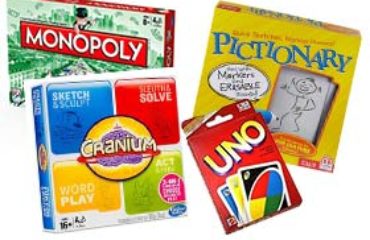
In recent years, all of Australia has begun operating with a national curriculum. Before this was introduced, the various states ran their own curriculum which meant that if the same child was to attend a school in Victoria or Queensland, they may receive different academic outcomes. With the new national curriculum, all schools in all states must follow strict guidelines about what is to be covered during each school year. It is the teacher’s responsibility at each year level to ensure they teach all the curriculum requirements of that year level.
In many cases, there is almost too much to get through in one single year. Particularly if you add in all the other extracurricular activities that take place within a school: school camps, sports events, mothers and fathers day stalls, charity events etc. On some school days, your child may not spend more than 10 minutes physically learning anything due to all the outside distractions and other events the school has planned. The vast requirements of the curriculum in addition to the many school distractions make the teacher’s task of covering the full required curriculum very difficult.
Why the curriculum doesn’t suit slow learners
Let’s first start by looking at slower learners. In any classroom, there will be children of all ability levels, each of these learn at a different pace. In many cases, we see the children that learn slower getting left behind. This is a sad reality, and these children are often dubbed as “stupid” or “dumb” by their peers, shattering their confidence and self-esteem, or making them become disruptive to others in class. In actual fact, many of these students are actually quite gifted, they just take a little longer to understand a concept when compared to the average student.
The problem for teachers is that they often cannot backtrack or wait for their slower learners to catch up; after all, it is their responsibility to get through the curriculum which benefits the class as a whole. This is by no means the fault of the teacher, they are only doing what is right for the whole.
Some schools offer remedial programs which usually work by removing the “remedial” students from the classroom during certain subjects and placing them in a smaller class with a different teacher who assists them in catching up. While these programs are beneficial, there are a couple of drawbacks. Firstly, no child wants to be labelled as “dumb” in front of their peers. By removing children to attend remedial programs, these children have just been labelled as being behind. And while us as adults see this as a good thing, it can simply turn into a reason for bullying or exclusion for children. Secondly, when attending remedial classes, the child is actually missing out on work that make up the full curriculum. This means they could potentially fall behind further as they miss out on learning or being exposed to concepts that are being taught when they are not in the normal classroom.
Why the curriculum doesn’t suit fast learners
On the other end of the spectrum to slow learners, every classroom will also have faster learners. These are the students that pick up new concepts very quickly and finish their work at a lightning-fast pace (while still getting the majority correct!). For these students, the teacher often moves too slow for them. Depending on the child, this can result in boredom (eg. doodling on their pages while they wait) or disruptive behaviour (eg. trying to get other students to talk or play little games with them to keep themselves entertained). In either scenario, the child is not utilizing the time in the classroom to further themselves academically. They are simply seeking alternative methods to remain busy and keep their brains active.
Some schools do offer accelerated programs to assist children like these in expanding their academic knowledge beyond what is being learned in the classroom. These programs are not usually introduced in schools until later in primary school, and other schools may not offer these programs until secondary school, or at all.
The solution for slow learners
If you have a child who is a slower learner, or who may be behind at school, seek external assistance to help them. Seeking assistance away from their peers can be beneficial in that their peers never have to know that they need extra help, eliminating the possibility of exclusion during school hours. It also means that your child should be able to stay within their class group and continue to be exposed to the whole curriculum rather than them risking them missing elements.
At Lynn’s Learning, we have assisted many slower learners to fully understand misunderstood concepts and build a stronger foundation to enable the child to learn faster, catch up to, and in many cases, surpass what their peers are learning at school. Particularly if the child has been struggling for some time, we find they also have very low confidence and self esteem. It’s always rewarding to not only help the child improve academically, but to also see the change in their confidence, attitude and general outlook as they start to gain understanding and believe in themselves.
The solution for fast learners
If your school offers accelerated learning programs, this is great! Another alternative is to enrol your child with an external tuition provider, such as Lynn’s Learning. Having worked in schools for gifted children, Lynn’s Learning Co-Founder, Lynn Tam developed learning programs that enable children to be advanced beyond their year levels. These programs assist at keeping children interested in learning, their brains active, and can also pave the stepping stones for potential scholarship or selective entry enrolments depending on what year level your child is in.
In summary, it is not the fault of the school or the teachers if your child is missing out at school. Keep in mind that each teacher has a specific curriculum they must teach before the school year ends; this is their responsibility. However, if you do want some additional assistance, or would like an honest assessment of how your child is currently performing in relation to their year level, contact Lynn’s Learning today. We offer individualised programs that are tailored to meet the needs and academic level of each child. All children are given an initial free assessment before enrolment, so you know exactly how they are currently performing, as well as any gaps in their knowledge. Contact us today for more information.



